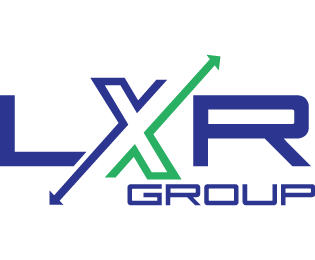On September 21 and September 22, respectively, the U.S. House Committee on Financial Services and the U.S. Senate Committee on Banking, Housing and Urban Affairs conducted back-to-back hearings on “Oversight of the Nation’s Largest Banks.” The witnesses were Charles W. Scharf, CEO and President of Wells Fargo & Company; Brian Moynihan, Chairman and CEO of Bank of America; Jamie Dimon, Chairman and CEO of JPMorgan Chase & Co.; Jane Fraser, CEO of Citigroup; William H. Rogers Jr., Chairman and CEO of Truist Financial Corporation; Andy Cecere, Chairman, President, and CEO of U.S. Bancorp; William S. Demchak, Chairman, President, and CEO of The PNC Financial Services Group.
Here are Seven Key Takeaways from Last Week’s Hearings:
1. The Mega Banks are No Longer the Pariah’s they Once Were. This was a good pair of hearings for the CEOs of the largest U.S. banks in the sense that moderate Democrats felt unencumbered in offering praise for the institutions and their leadership. In a very unusual step, on the first day of the hearings, before the CEOs had even begun their testimony, Rep. Ed Perlmutter (D-CO) used his prerogative as a subcommittee chair to deliver an opening statement drawing a through line from the 2008 crisis to present: “The banking sector lost a lot of trust in 2008, but with the passage of Dodd Frank and disciplined and prudent operations, our banks are now well capitalized. Banks have been a source of strength during the pandemic and in many cases have made progress in restoring consumer trust over the last decade.” During the Q&A period, Rep. Himes (D-CT) also focused on this theme: “I first sat in this room in the first quarter of 2009, when the economy was contracting at an annualized rate of 10 percent. And I really did worry that a number of your institutions weren’t going to survive the week. We have come a long way. […] Credit where credit is due, we got through the mother of all stress tests in these last two years because of Dodd Frank, but also because of your stewardship of the institutions that you run.” Of course, the “mega-banks” are not fully out of the woodshed – indeed, top progressives on both the HFSC and Banking committees have changed their tone little from 2008. But key HFSC centrists, without whom Dodd-Frank could never have passed – seem to have viewed the pandemic as a true “stress test,” and a success.
2. The Big Banks Continue to Inexplicably, Inexcusably, Botch their Handling of Fraudulent Transactions on the Payment App “Zelle.” For readers not following this issue: one of the smoldering gaps to emerge the consumer financial protection regulatory framework in 2022 relates to “scams” perpetrated through payment apps. The regulatory problem owes to inadequacies in Regulation E, and to the need for Congress to update the 1970s era Electronic Funds Transfer Act to reflect modern technologies. That is a problem for consumers. However, when that fraud occurs on a specific payment platform – Zelle – it’s also huge political liability for the biggest banks. That’s because, unlike other popular payments apps like Venmo, etc., Zelle is owned by large banks – including six of the seven banks who testified last week. Frustration from Senators over the bank’s reluctance to assume responsibility for fraud on Zell came to a boiling point over the summer, with separate letters from top Committee Democrats urging banks to take action and urging CFPB to conduct rulemaking. In response to the letters, with the exception of Truist, the banks took essentially no action. The CEOs and the banking industry paid a price for that at the hearings.
3. Wall Street was Not at the Dais. What is a “big bank oversight” hearing without the CEOs of Morgan Stanley and Goldman Sachs? Well, it may be the beginning of a reversion to a historical norm. The idea that “investment banking” and “commercial banking” are fundamentally different things – different function, personality, culture, regulation, worldview – was a truism in the minds of regulators and policymakers during the decades preceding 2008. That all changed (again) in 2008, when Congress came to realize (2o years after Congress had itself torn down the barrier) the degree of inter-connectivity between commercial and investment banking; and when Goldman and Morgan Stanley were forced by the Fed to become bank holding companies. From then until 2021, the two investment banks became fixtures at Congressional hearings on “big banks.” It was thus of some interest to see their seats taken by PNC and Truist at last week’s hearings.
4. Proxy Advisory Firms Had Better Lobby Up. Sen. Bill Hagerty (R-TN) used the hearing to blast proxy advisory firms as “at the heart of a troubling trend of weaponizing unsuspecting Americans’ voting rights in the name of the radical ESG agenda,” and announce that he will be cosponsoring legislation to “address the problem” with Sen. Dan Sullivan (R-AL). The proxy adviser industry narrowly succeeded in beating back legislative and regulatory proposals to impose regulation and oversight during the Trump era. Since January 2021, when Democrats assumed a majority in the Senate, and installed Gary Gensler as SEC chair, the issue of proxy adviser oversight has fallen off the map. The exchange suggests that this period of relative quite is poised to quickly change should Republicans capture one or both Houses of Congress in November. For his part, given an opportunity to comment, JP Morgan Chase CEO Jaime Dimon remarked: “I personally think it’s a disgrace when they rely on proxy advisers. I think proxy advisers are terrible. […] We have gone from 7000 public operating companies to 4,000 over the last 20 years or so, and that’s a problem. We’re driving them private. This is part of the reason.”
5. The Political Acrimony over Climate Change that has Overtaken Discussion of Capital Markets Policy is on the Verge of also Dominating the Policy Discussion around Bank Regulation. On Wednesday, before Rep. Andy Barr (R-KY) had an opportunity to urge the CEOs to “reject the demands of climate alarmists who have called on you to immediately cut off financing for fossil energy firms,” Rep. Frank Lucas (R-OK) voiced his own “worry that regulations could begin to use climate stress test to shape and enhance capital requirements.” The same concern was echoed the following day by Sen. Tim Scott (R-SC). And so it went. Rep. French Hill (R-Ark), a former banker, took aim at a bill (H.R. 3571) that would “require a climate stress testing.” Senate Banking Ranking Member Pat Toomey (R-PA) asked witnesses whether they believed “US banking regulators have the statutory authority to determine how quickly the U.S. transitions to a low carbon economy,” and excoriated “America’s largest money managers,” and in particular, something called The Net Zero Asset Managers Initiative – for “exercising powers they don’t really have.” Sen. John N. Kennedy (R-LA) warned the CEOs: “You will never win the ‘uber woke’ sweepstakes. I understand the pressure to run it is fierce. You will never win it. Nothing you do will ever do will be enough.” While the basis for some of the questions in this vein were ostensibly related to recent comments by Federal Reserve Vice Chair Michael Barr, addressing “financial risks from climate change,” there is little doubt that sniping across the aisle on the role of bank regulation in shaping climate policy has only just begun.
6. Wells Fargo Remains on Thin Ice: In both the House and the Senate, it took less then one minute for Wells Fargo CEO Charles Scharf to come under attack from top Democrats on the committees. In leading off the questioning in the House on Wednesday, Chairwoman Maxine Waters (D-CA) read out a laundry list of scandals and enforcement actions having occurred during Scharf’s 3-year tenure as CEO, chiding him for “not doing enough to finally break the pattern of repeat offenses.” On Thursday, Senate Banking Chairman Sherrod Brown (D-OH) in turn singled out Wells Fargo in both his opening statement and his questioning. Indeed, immediately after recognizing himself to kick off the Q&A portion of the hearing, Sen. Brown addressed Scharf to observe that “it seems to some of us that year after year, CEO after CEO, scandal after scandal, nothing at Wells Fargo seems to improve,” and to ask the CEO if his bank is “too broken to fix?”
7. The Senators from Georgia were on Fire. Two of the highlights of the hearing were Sen. Raphael Warnock’s (D-GA) questioning of the CEOs on overdraft fees, and discussion of “the impact these fees have on ordinary folks who are just struggling and trying to make ends meet.” Equally impressive was Sen. Jon Ossoff (D-GA), who used his time to quiz the CEOs on housing policy; access to banking services in languages other than English; rural bank closures; and vulnerabilities of certain communities to payment fraud scams on Zelle similar platforms. When Bank of America CEO Brian Monihan appeared dismissive in addressing a question of Ossoff’s, noting that “you may have missed it earlier but we had a fairly robust discussion about all the commitments with all of my colleagues to work on this,” the 35-year old freshman shot back: “I didn’t miss it. I followed it closely. And I would like to hear from you and your team directly.”
###


